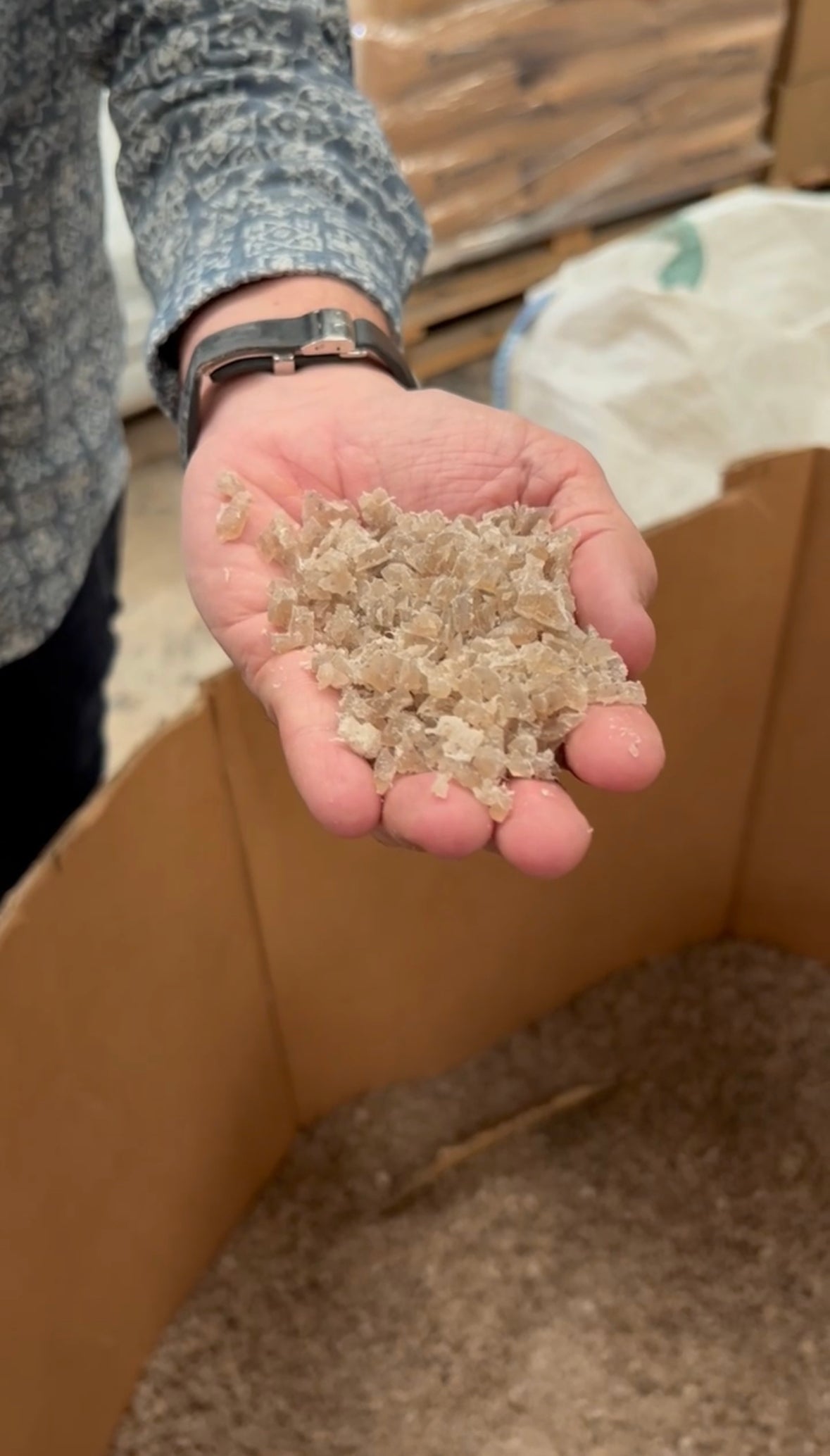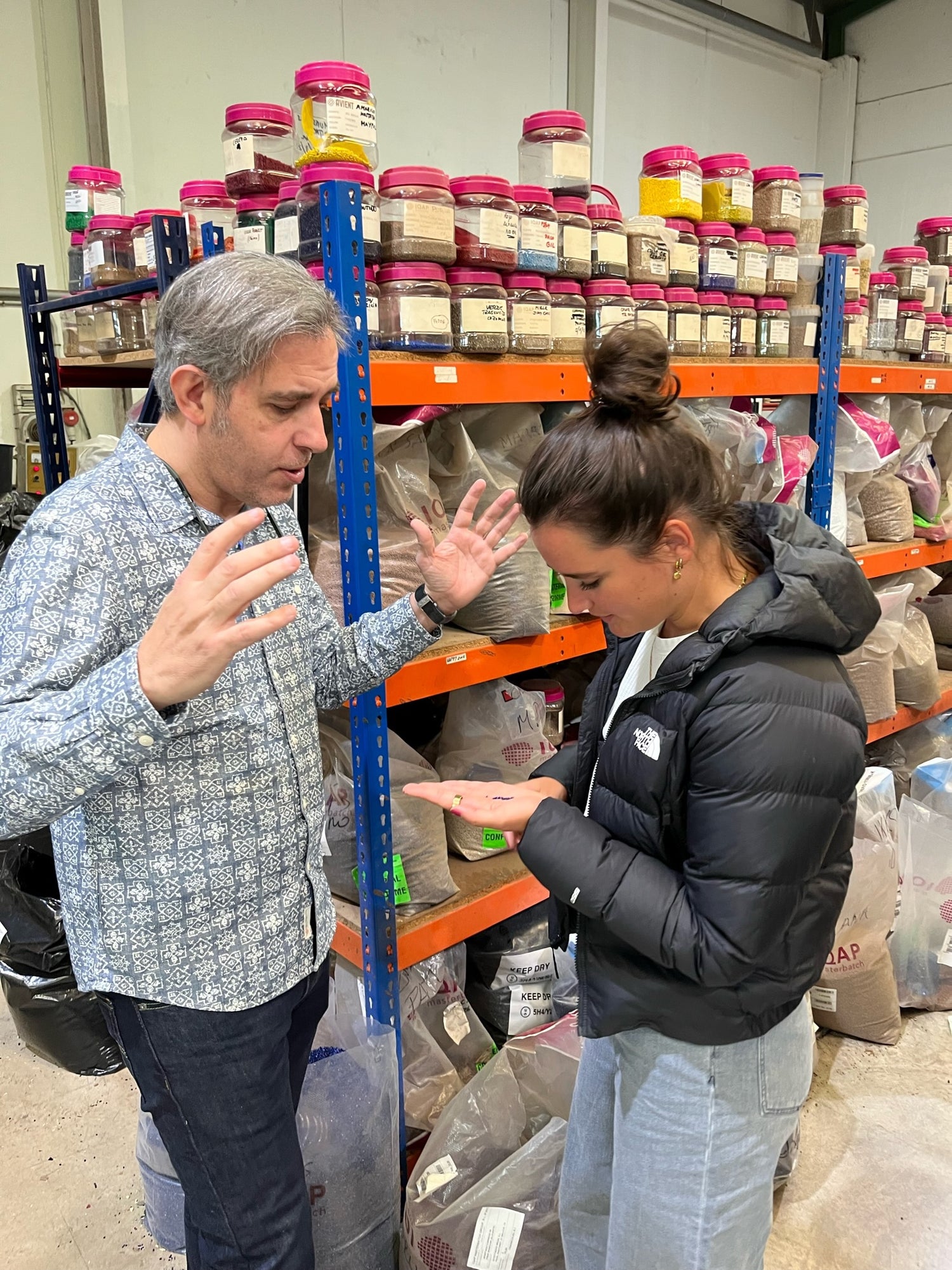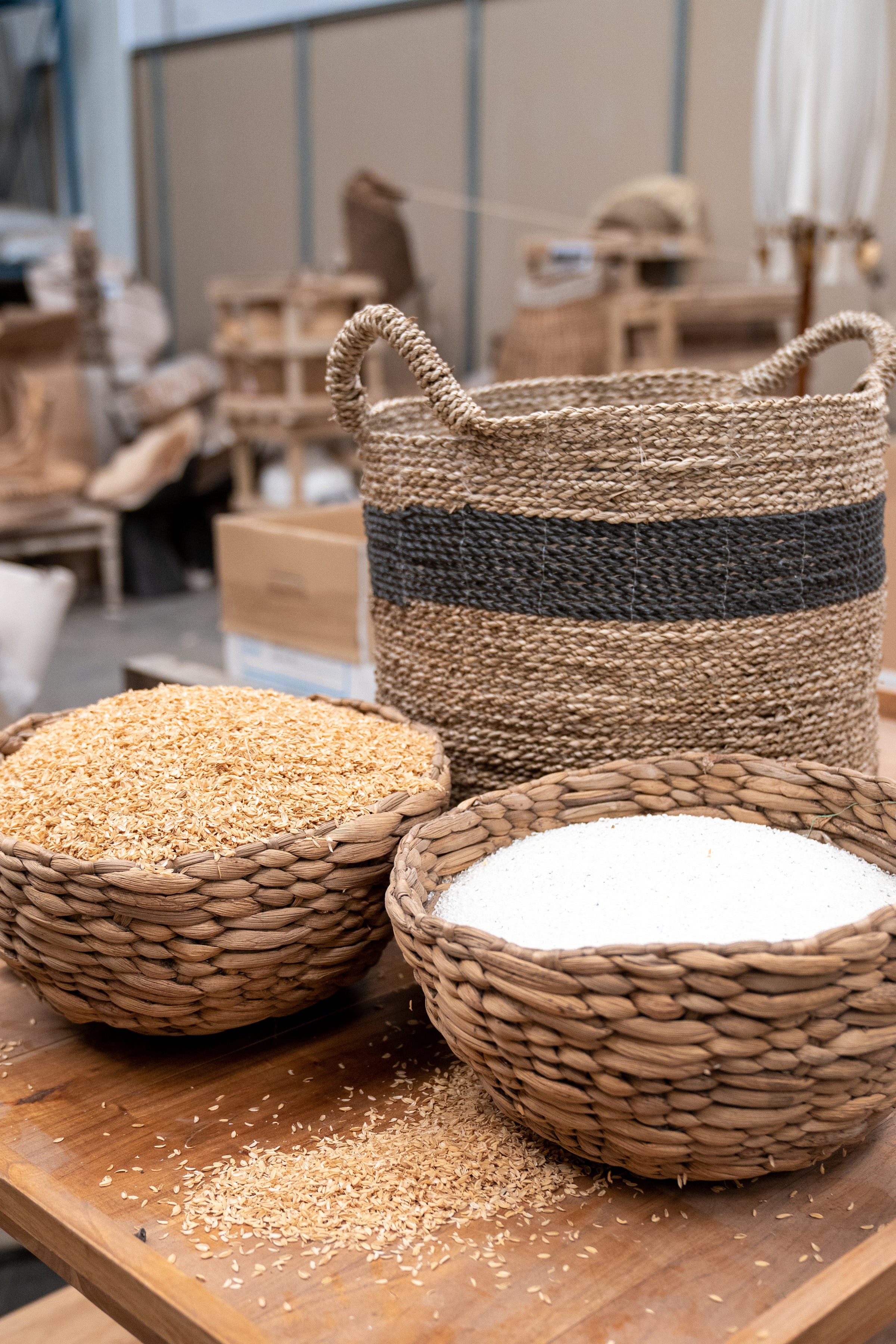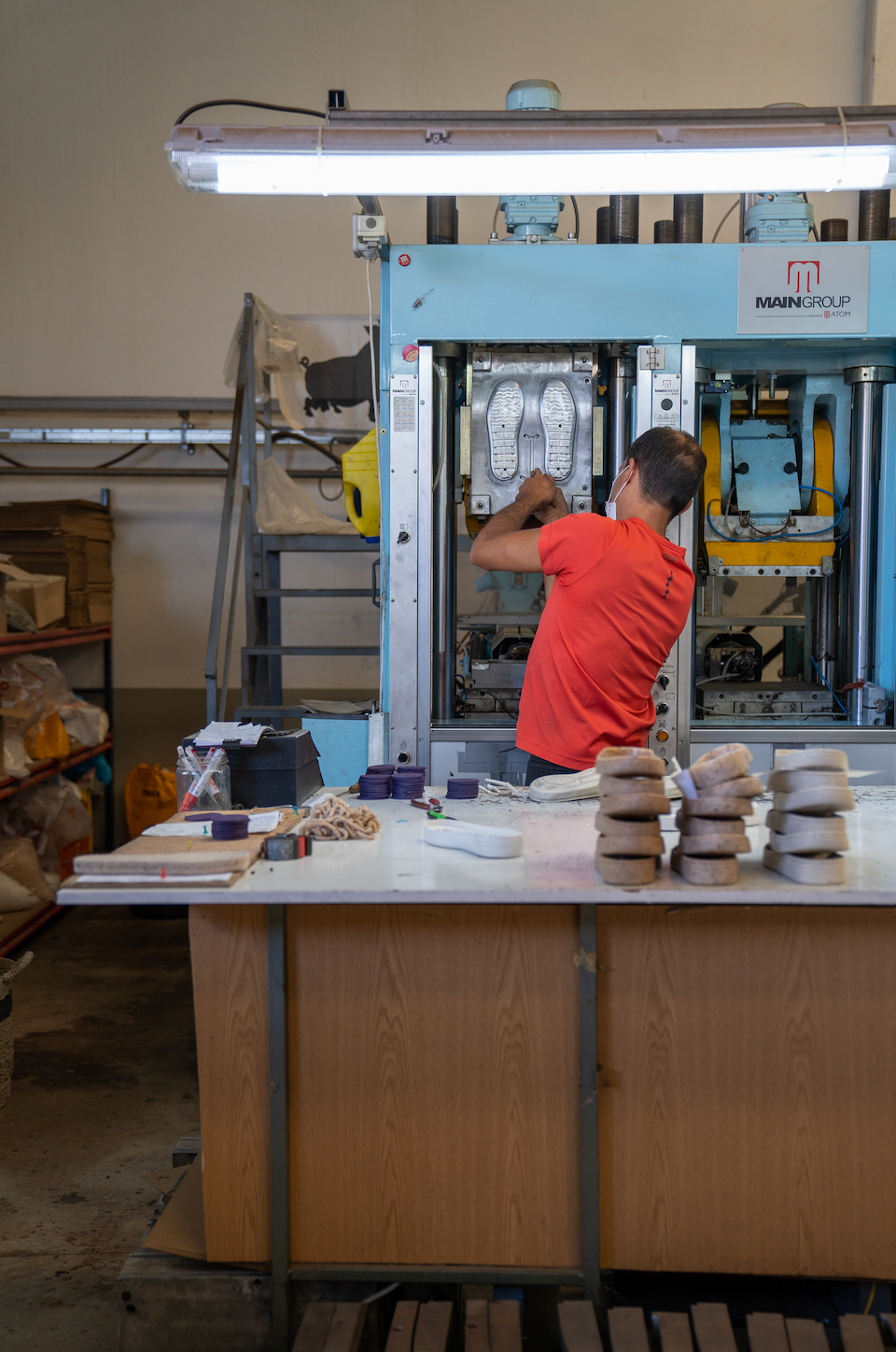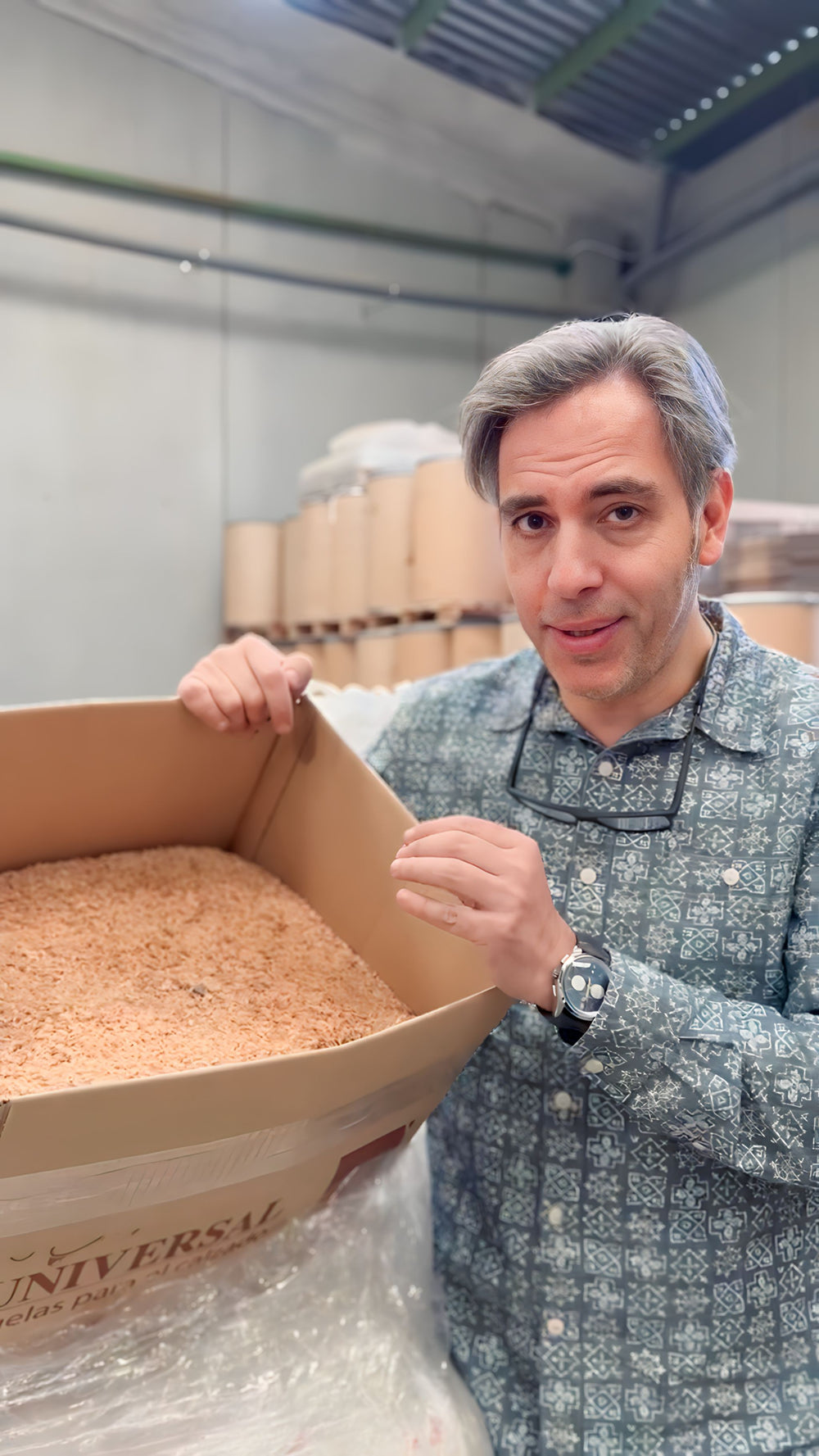
THE RICE SOCIETY 3 things to know about you? (I guess Music ;) — what else?
MARCOS CARRERO I am a very active person, my great passion is music and that is why I am a great collector of vinyl records, with a collection of several miles of copies (rock from the 60s-70s, punk from the 70s, postpunk from the 80s, dark music from the late 80s, electronica, etc...). In addition, I am a sound engineer and DJ, and worked for several years as a TV cameraman, sound technician and photography teacher. I have also been a big fan of the entire Star Wars universe since I was little. On the other hand, I am quite athletic and I have played a lot of football... now I play paddle tennis, but not as much as I would like because I have a 2-year-old son to whom I try to dedicate as much time as I can. I am a very creative person, but at the same time with very technical thoughts.
TRS How did your company start and how did the journey towards sustainability start?
MC About 20 years ago, I was finishing my studies at university (Polytechnic University of Valencia) and due to the family business in footwear, I had the opportunity to create a sole injection company. Over the years, the company has grown in size and diversified products. Now we not only produce footwear, we also produce technical parts, furniture protectors, safety items for motorcyclists, gel insoles, toys, etc... generating several patents and producing for a very important international companies. About 7 years ago, I began to realize that the production of plastic materials had to change and that a sustainable production method had to be found to carry it out. Today, “Inyectados Mega” is the first plastic injection company to achieve the most important sustainability certifications at the European level, generating dozens of R&D projects.
TRS Can you share what sustainable practices your company uses in making shoes?
MC According to our point of view, the first thing is to create 100% recyclable materials… it is the mother of everything. Once we fulfil this premise, the next step is to purify the Carbon Footprint to be able to create products with the least possible impact on the environment. To achieve these low “Carbon Footprints” we rely on the use of recycled materials, whether of synthetic origin (Pet from water bottles, rubber from car wheels, car parts, plastic products, etc.) or of natural origin (palm tree fiber, beach algae, coffee capsules, rice husk as is your case, etc…) and in all cases it is waste close to our factory, that is, “Km0”. In addition, we develop low-energy machinery, we consume 100% electricity from renewable sources (like solar plates), we create Bio-based materials by removing plasticisers of petroleum origin and replace them with products of organic origin, we have a “0” waste concept, etc… Another important aspect is that we try not to do business with sustainability, we try to democratize this type of products, maintaining prices similar to conventional products.
TRS You alway have very exciting new projects when I am visiting you, how do you source these materials? And what’s the next big thing? :)
MC The materials I use have to meet three requirements: that they are waste, that they exist in large quantities and that they are relatively close to our production center. The first requirement, that it be a waste, is clearly so as not to interfere in other sectors. I always give the same example, that of “Biodiesel”. This fuel attempted to reduce oil consumption and pollution, but ended up raising the price of corn, soybeans or wheat, generating food problems in underdeveloped countries. The second requirement is that there are significant quantities, since our production cannot depend on whether there is more or less of this waste in one year. Finally, the requirement of proximity is to avoid including a Carbon Footprint due to transportation in our recipe. It would not be wise to save an amount of CO2eq. by using a certain waste to then actually have double the Carbon Footprint because it is generated by the trucks that collect it.
TRS The next big idea or big project?
MC I'm really already working on it, but for privacy reasons in the development I can't say anything, but I can tell you that I have discovered one of the great mines of used plastic that exist, and that until now no one has dared to use. I hope that I will soon be able to announce the new European R&D project in sustainability.
TRS In our first call you told us that your company is supporting women who are victims of domestic violence. Could you tell me more about this program and how it started?
MC This is a European funding project in which I am involved, through which an association of victims of domestic violence (made up entirely of women) is dedicated to disassembling shoes to later sell that material separately. In addition, we always try to help our environment by sponsoring women's sports teams or giving work to unemployed young people from employment workshops in the Monovar town (Alicante) where we are, with the help of its City Council. We would really like to do much more, but we have had to live through a somewhat difficult global economic situation… but with innovative ideas we are making many social advances!
TRS What positive changes have you seen as a result of your sustainability and social support initiatives?
MC Everything related to sustainability is going so slowly that we do not realize the changes we have generated, but if we compare this year with others, our sustainable or ecological production already represents almost half of our conventional production. We also notice that more and more brands are interested in sustainability, because society increasingly demands this type of product. In fact, starting in 2025 throughout Europe there will be a major change in regulations and stricter policies. Companies like “The Rice Society” that have been able to get ahead of others in the concept of sustainability, should be an example for those to come. As “John Lennon” sang in his day: “You may say I'm a dreamer, but I'm not the only one, I hope someday you'll join us.”
Ira, posted in December, 2023
